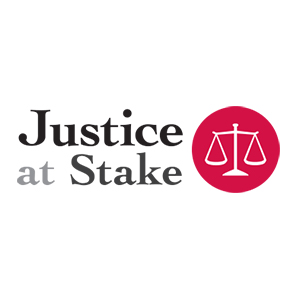Justice at Stake, a group dedicated to impartial courts, closes amid funding woes

Justice at Stake is closing its doors after 16 years of advocating for fair and impartial courts.
The group announced its shutdown in a press release. The group had depended on money from progressive foundations and individual donors, and donations were lagging, according to former executive director Susan Liss.
“It was just a confluence of circumstances that resulted in not having enough funds to continue,” Liss told the ABA Journal in an interview. “I think that all organizations are, for whatever reason, constantly scrambling.”
Some funders were pulling out of the court-independence field to focus on other priorities, Liss said. Yet Justice at Stake was embarking on a strategic growth plan to push for two priorities: encouraging states to adopt merit selection and to increase diversity on the courts. And some funders didn’t agree with merit selection as a policy, she said.
To implement its growth plan, Justice at Stake moved to larger quarters and began planning several large conferences, targeting five states where it hoped to have an impact as it also advocated at the national level. Fundraising did not keep up with the group’s ambitious vision, Liss said.
“It’s sort of not a story because it happens all the time,” Liss said of the group’s fundraising woes. “And it’s a terrible story when it happens to people I care about and issues I care about. … Sadly, there are a number of organizations that find themselves in this position. They have wonderful plans but they haven’t done sufficient fundraising to make those plans turn into a reality.”
Retired U.S. Supreme Court Justice Sandra Day O’Connor was the honorary chair of Justice at Stake from 2013 through 2016. In the press release, O’Connor said it was a pleasure to serve.
“Justice at Stake has done outstanding work on behalf of fair and impartial courts for many years, and has been a strong voice opposing the politicization of courts,” O’Connor said. “It is as true today as ever that organizations like Justice at Stake deserve public and philanthropic support so that we can continue to fight back against efforts to turn judges into politicians and state courts into magnets for campaign cash.
“Justice at Stake has brought these issues to the fore and has inspired people across the United States to fight for fair courts, and I will always be proud of the work we’ve done together.”
Liss says Justice at Stake was a leader in promoting independent courts. The group didn’t take a position on judicial nominees, putting it in a different space than groups like People for the American Way and the Alliance for Justice.
“Justice at Stake began the conversation among the various organizations about the need to promote independent courts,” Liss said. “And why it was important that our courts not reflect one ideology or another. Why after Citizens United it was important that judicial elections not collect an inordinate amount of money from one side of the spectrum or another.”
Other organizations promoting court independence include the Brennan Center for Justice, the American Constitution Society and the Institute for the Advancement of the American Legal System.
Liss said she became executive director of Justice at Stake in February 2016 “thinking I had an opportunity to take a really exciting organization to the next level.” But as she became familiar with the group’s financial problems, she became “the workout person,” figuring out how to place staffers, what to do with records, and how to avoid bankruptcy.
A bankruptcy lawyer helped in winding down Justice at Stake. The group was able to negotiate termination of its lease, and there was no need for a bankruptcy filing, Liss said.
Liss has a 40-year career as a public interest lawyer and advocate, and she hopes to continue working. She helped in the selection and preparation of judicial nominees in the Clinton administration, was the first director of the Alliance for Justice’s judicial selection project, and did similar work at the Alliance for Justice.
“I am hoping to continue my work in the field of judicial independence and judicial integrity, and I’m not really sure what direction that will take yet,” she said.



